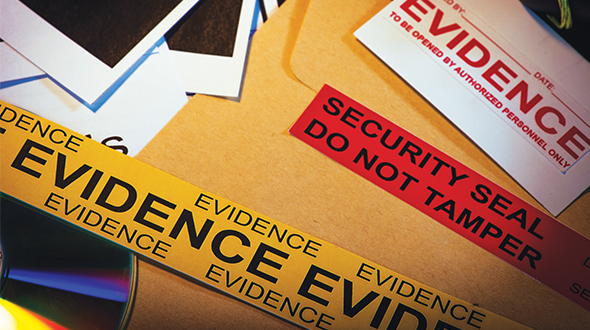The burden of evidence in criminal and civil cases

Criminal cases require proof that is beyond a reasonable doubt, while civil cases require a preponderance of the evidence. Photo: iStock.com/EXTREME-PHOTOGRAPHER
Evidence required to prove innocence differs depending on the type of lawsuit
In the many years I have been writing this column, I have shared case studies and looked at particular parts of codes and statutes when they touch upon the industry. All of this has been to provide some glimpse into how your everyday work is viewed from a legal perspective.
One of the more intriguing ways to think about the propane industry from a legal standpoint is to speak of standards that are the touchstones for analyzing and judging industry member behavior in the context of a claim or lawsuit.
For our purposes, cases fall into two camps: civil and criminal. Civil cases can be administrative as well as by way of a civil lawsuit. There are other government agencies and branches that affect our industry. The legislative branch can have a major impact on your business by laws it creates, modifies or repeals.
In criminal cases, we speak of the burden of proof as being “beyond a reasonable doubt.” The prosecution has to prove to the jury that a defendant has committed the crime by evidentiary proof beyond a reasonable doubt. This is considered the highest legal burden and allows the defendant to walk free if there is any reasonable doubt that the defendant is not guilty.
We do not come across many criminal convictions in our industry, but there are cases where catastrophes have led to criminal convictions of corporate officers for egregious conduct.
Civil cases are typically more common in the propane industry. Although, given the desirable track record our industry has of being vigilant about safety, those claims are still quite rare. Civil cases are typically brought by private individuals or companies against a propane marketer.
The most common burden of proof is what we call the preponderance of the evidence standard. You need only to convince someone that the claim is more likely than not true. It is the lowest standard of proof in the court system.
Plaintiff lawyers want the jury to see it as a very low threshold to overcome. If a defendant in a civil case asserts a defense to what is alleged against him/her by a plaintiff, that defendant has to prove that defense by a preponderance of the evidence.
As a practical matter, any experienced civil trial lawyer will tell you that to win the case you must do two essential things: Prove the defendant’s claim is wrong and not supported by the evidence and tell the jury how the accident actually happened.
Both propositions need to be established by a preponderance of the evidence. It is never enough to just destroy the plaintiff’s story. The defendant must also have a credible story. If you don’t, the jury will be left with one story and no alternative.
Finally, there is the civil evidentiary burden of proof that is clear and convincing. This applies to cases that concern civil liberty interests or equitable remedies are at stake. The evidentiary proof in this claim must be highly reliable and substantially more likely to be true than untrue. The cases in this category usually concern risks that are relatively high or claims that involve more than mere negligence.
This is in large part based on logic and experience. These guiding principles have evolved over time to the evidentiary standards that now govern how decisions are made. These standards can greatly impact final decisions and verdicts. They also guide lawyers as we assist our clients.
As you work with your lawyer, these rules of evidence may help you to better understand what will be needed to satisfy the evidentiary burden to win your case.
John V. McCoy is with McCoy, Leavitt, Laskey LLC. His firm represents industry members nationally.
















